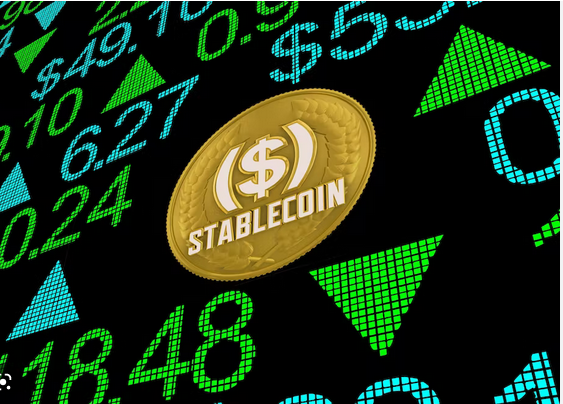
Stable Coins: A Safe Haven In The Volatile Crypto World
Published on March 7, 2023 at 11:11 AM by Robert Ngwira
Cryptocurrencies are often known for their volatility, making them a risky investment for some. But stablecoins offer a more stable and reliable alternative. In this detailed, informative guide, we will explore what crypto platforms are, how they work, and why they might be a good addition to your investment portfolio. So, let’s get started.
What are Stable Coins? A Brief Overview
Digital assets known as stablecoins are linked to reliable assets, such as gold or the US dollar. This peg keeps the price of the stablecoins relatively stable, even in volatile markets. A growing number of people use stablecoins to store value and lower volatility.
Types of Stable Coins
There are several types of stable coins, and each uses a different mechanism to maintain stability. In this section of the article, we will explore the different types of stable coins and how they work.
From fiat-backed stable coins to commodity-backed stablecoins and crypto-collateralized stable coins, we will provide a comprehensive guide to help you understand the various stablecoins available in the market today.
- Fiat-backed stablecoins:
Stablecoins that have been “fiat-collateralized” are supported by a reserve of fiat money, such as the US dollar. Typically, a bank or the government will issue them as a centralized body.
Popular fiat-backed stablecoin Tether (USDT) is linked to the US dollar. Tether Limited, a Hong Kong-based business, produces tether. Tether Limited holds reserves of US dollars in a 1:1 ratio with the amount of USDT in circulation. This helps to ensure that a real US dollar backs each USDT.
- Commodity-backed stablecoins:
Stablecoins that include a reserve of commodities, such as gold or silver, serve as their collateral. Central banks or other financial institutions often issue them.
Digix Gold (DGX) is a commodity-backed stablecoin pegged to gold. Each DGX token is backed by one gram of gold, and users can redeem their tokens for physical gold bars.
- Crypto-collateralized stablecoins:
A pool of cryptocurrencies like Bitcoin or Ethereum supports cryptographically collateralized stablecoins. Decentralized organizations, such as protocols or DAOs, often issue them.
Advantages and Disadvantages of Stable Coins- Points To Note
There are many reasons to find a stable coin attractive. They are digital assets that can offer all the benefits of cryptocurrency — including decentralization, security, and transparency — without the volatile price swings. In contrast to more established cryptocurrencies like Bitcoin and Ethereum, they offer greater stability.
The benefits and drawbacks of stablecoins should be understood before investing in them.
Advantages:
- Stablecoins offer price stability, essential for many applications such as payments and lending.
- Real assets back them, so there’s less risk of them becoming worthless.
- They could eventually turn into a universally accepted form of payment.
- By facilitating wider user adoption, they may contribute to the growth of cryptocurrencies.
Disadvantages:
- There’s still a risk that the underlying asset could lose value, leading to investors’ losses.
- They’re not yet widely accepted, so they may be difficult to spend or exchange.
- Some stablecoins are pegged to fiat currencies, which means they’re subject to government regulation.
Examples of Existing Stable Coins
There are a handful of stablecoins that already exist and are operational. Examples that stand out include:
Tether (USDT) is a digital currency backed by real-world resources, including the US dollar. It is designed to maintain a 1-to-1 ratio with the US dollar, meaning each Tether token is always worth USD 1.
TrueUSD (TUSD) – TrueUSD is another digital currency pegged to the US dollar. It uses multiple escrow accounts to back its value and is transparent about its reserves.
Paxos Standard Token (PAX) – PAX is a regulated stablecoin launched by Paxos, a financial technology company. PAX tokens are backed 1:1 by the US dollar and held in reserve by Paxos.
These are only a few instances of stablecoins that are currently in use. We may anticipate more creative stable coin ventures launch as the market expands.
Conclusion
Stablecoins are a great option for those looking to mitigate the volatility of cryptocurrency trading. By understanding how stablecoins work and their advantages, you can make informed decisions about investing in cryptocurrencies. With more and more exchanges offering support for stablecoins, now is an excellent time to take advantage of this revolutionary new asset class. Also, you should try Immediate Edge app.


